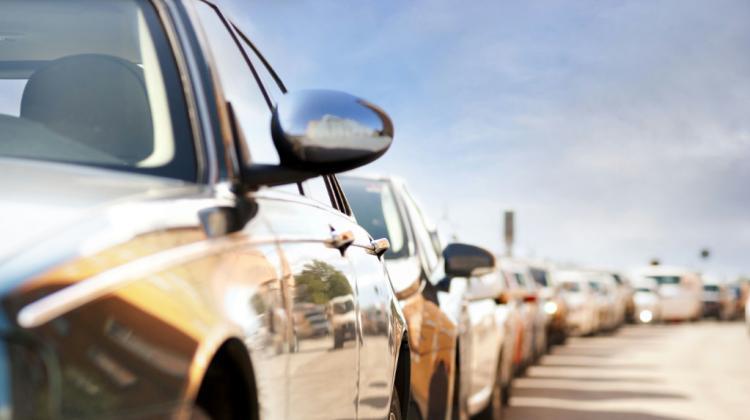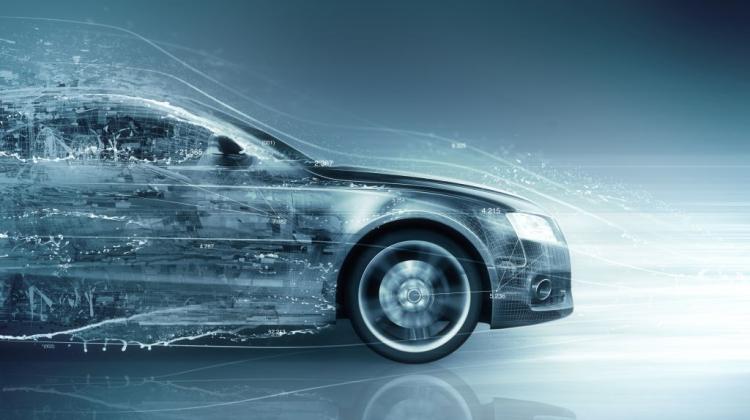Expert: In 10-20 years autonomous vehicles will replace private cars

Already in 10-20 years, fully autonomous vehicles will be common on our streets. A car will be a luxury product for rich people - Prof. Dariusz Jemielniak from the Kozminski University in Warsaw predicted in an interview with PAP.
According to the researcher, even our views on the possibility of owning a vehicle may change. "Although many people find it difficult to imagine life without their own vehicle, which in addition has a significant status role in Poland, we should remember that the situation was similar with butlers" - told PAP Prof. Jemielniak, international management and internet research expert. "As autonomous taxis will also be commonplace, it is very likely that owning a car will only be an extravagant luxury for the rich" - he added.
He also expressed doubts whether in 20 years cars would be the dominant form of transport. Alternatives include automatic city passenger drones or, in the case of larger distances, railways in low pressure tunnels.
But will such profound changes in transport meet with social acceptance? Researcher from the Kozminski University emphasised that society is not homogeneous; there will be both avid supporters and opponents of new technology.
"Many people will not want to give up driving a car despite the obvious safety advantages. However, the transition will be relatively smooth, as nowadays modern vehicles already offer strong driver support" - the researcher pointed out.
But before we have to make the final choice between an autonomous car and driving ourselves, autonomous trucks will appear in traffic. Consequently, we can expect social acceptance to grow rapidly, even in spite of obvious occasional hysteria in case of unavoidable accidents involving machinery" - predicted Prof. Jemielniak.
The researcher expects that at some point the approach of the majority of the population to autonomous vehicles will change dramatically.
"After reaching a certain critical mass, we can expect a growing pressure to prohibit people from driving in public traffic" - said Jemielniak.
For the time being, governments in many countries are looking at the subject of autonomous vehicles and express doubts about their development, especially before achieving full automation. In a March 15 issue of the British Council of the Lord\'s Science and Technology Committee report, we read, among other things, about the risks associated with the so-called third level of automation - a situation in which a vehicle can drive autonomously, for example on motorways, but user must always be ready to take control. British lawmakers are concerned that this may dull the attention of the driver and delay his reaction.
However, Prof. Jemielniak does not attach much importance to the doubts of the British. "The law as usually a step behind technology - the Tesla model currently available already meets these criteria. This is basically an autonomous vehicle in which the driver\'s supervision is occasional (and partly forced by law)" - he noted. "The danger of lack of attention is obviously very large, we should remember that today machines make fewer mistakes than people do".
At the moment, he believes, the focus should be primarily on achieving universal acceptance of autonomous vehicles, both trucks and vehicles for personal use. The professor also pointed out that ethical issues such as responsibility for accidents and decisions, whose life should be sacrificed in the event of a need to choose, remain unanswered; these issues are often raised today by ethical theorists.
"Although I think this is an important issue, I think it will be quickly resolved by the market, not by the development of theory - and that most likely the autonomous machines will simulate the most common behaviour of live drivers simply to prevent customers from having doubts with regard to buying automated cars" - said the researcher. "Given that this approach will lead to the most fluid transition to the new system, it also seems to be most acceptable".
The market can not control everything; If autonomous vehicles are to be the future of transport, standards for their creation and use must be developed. The role of government regulations is important here - noted Prof. Jemielniak.
"Free market can easily lead to a situation in which, for example, customers get a product that has not been sufficiently tested, simply because the company wants to be the first on the market" - he warned and added that such allegations were being made against Tesla.
"New technologies, in particular, should not be left to corporations - the goals of corporations do not take into account the protection of the interests of the humanity in any way, and in the case of modern technologies this is actually quite important. The problem is visible, for example, in the development of artificial intelligence as well as biochemistry, or gene editing, but autonomous vehicles should also be subjected to strict, though enlightened control" - concluded Prof. Jemielniak.
PAP - Science and Scholarship in Poland, Katarzyna Florencka
kflo/ agt/ kap/
tr. RL
Przed dodaniem komentarza prosimy o zapoznanie z Regulaminem forum serwisu Nauka w Polsce.

















